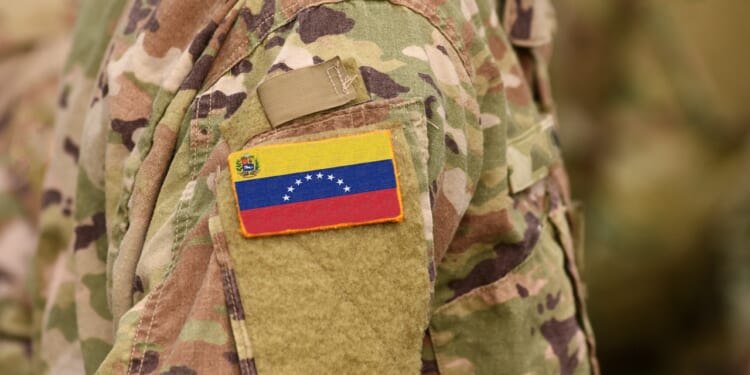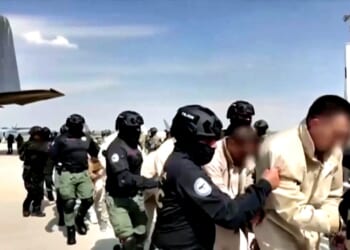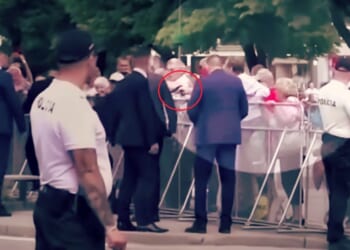It is unclear if the Venezuelan government was telling the truth—but the CIA has a long history of clandestine operations in Latin America.
The Venezuelan government alleged this week that it had captured a “mercenary group” with ties to the United States Central Intelligence Agency (CIA), and that the individuals were plotting to start a military conflict in the region.
“A false flag attack is underway in waters bordering Trinidad and Tobago or from Trinidadian or Venezuelan territory to generate a full military confrontation with our country,” Venezuelan Vice President Delcy Rodriguez said in a media statement.
The claims from Caracas came after President Donald Trump had publicly confirmed earlier this month that he authorized “covert” CIA actions in the South American nation. Critics of the president have also warned that such operations weren’t exactly covert after his announcement.
While speaking in the Oval Office, the president defended the decision to send CIA operatives to Venezuela, saying it was authorized for two reasons.
“Number one, they have emptied their prisons into the United States of America,” Trump claimed, and added, “And the other thing are drugs. We have a lot of drugs coming in from Venezuela.”
The administration has repeated a claim that Venezuela is a narco-state supported by the trafficking of illicit narcotics. However, that isn’t accurate according to experts. Cocaine, the largest narcotic by volume and value originating in South America, is primarily produced in Colombia, Peru, and Bolivia. Only a small portion of cocaine actually transits through Venezuela, while fentanyl is primarily produced in Mexico.
The “Cartel of the Suns,” a loose network of criminal cells, does have ties to the Venezuelan military and has been linked to some narcotics shipments to the United States. However, the group is known for a range of other criminal activities, including the smuggling of oil.
The CIA Has a Bad Reputation in Latin America
The CIA has a long history of activity in Latin America—including working with militaries in the region to overthrow democratically-elected left-wing governments in favor of right-wing ones. Still, it remains unclear whether the agency is currently working with any individuals who could be accurately described as mercenaries.
Notably, this isn’t the first time that Caracas has said it believed there were “private military contractors” operating in the country. In January, Venezuelan authorities detained a group of foreign individuals, including American and Colombian nationals, alleging they were planning an assassination attempt on President Nicolás Maduro.
The Venezuelan strongman had previously survived an attempt on his life in 2018—and claimed the United States supported the May 2020 Operation Gideon, another abortive attempt to remove Maduro from power. The BBC later described that failed operation as the “Bay of Piglets.”
Maduro Is Likely Using Mercenaries to Shore Up Power
Even as Caracas has alleged that foreign mercenaries were actively operating in the country to orchestrate the overthrow of the regime, individuals with ties to a notorious Russian PMC recently arrived to aid the Maduro government.
Defense News reported that over the past weekend, a Russian Illyushin Il-76 transport aircraft landed in Venezuela with former members of the Wagner Group. The mercenary group previously operated in Africa and Ukraine.
The aircraft made a two-day flight with numerous stops, including in Armenia, Algeria, Morocco, Senegal, and Mauritania.
“The multi-stop journey is emblematic of the circuitous routes used to avoid Western airspace or possible cargo inspections in unfriendly countries. It is also possible that deliveries or pick-ups were made along the way,” Defense News explained.
The Il-76 can carry up to 200 people or 50 tons of cargo, but it is unclear exactly how many individuals were on board when it landed in Venezuela, or what cargo was on board. There is some speculation that the plane may have delivered small arms and military personnel, but that has not been confirmed.
The Russian private security contractors had previously provided security for Maduro in 2019, and their return may signal that Venezuela is ramping up its defenses to counter CIA operations and potential air strikes on land targets, which President Trump has said could be imminent.
Moscow has accused the West of waging a proxy war against Russia by supporting Ukraine. Now the Kremlin may be attempting to drag the United States into a similar conflict in South America.
About the Author: Peter Suciu
Peter Suciu has contributed over 3,200 published pieces to more than four dozen magazines and websites over a 30-year career in journalism. He regularly writes about military hardware, firearms history, cybersecurity, politics, and international affairs. Peter is also a contributing writer for Forbes and Clearance Jobs. He is based in Michigan. You can follow him on Twitter: @PeterSuciu. You can email the author: [email protected].
Image: Shutterstock / Bumble Dee.

















